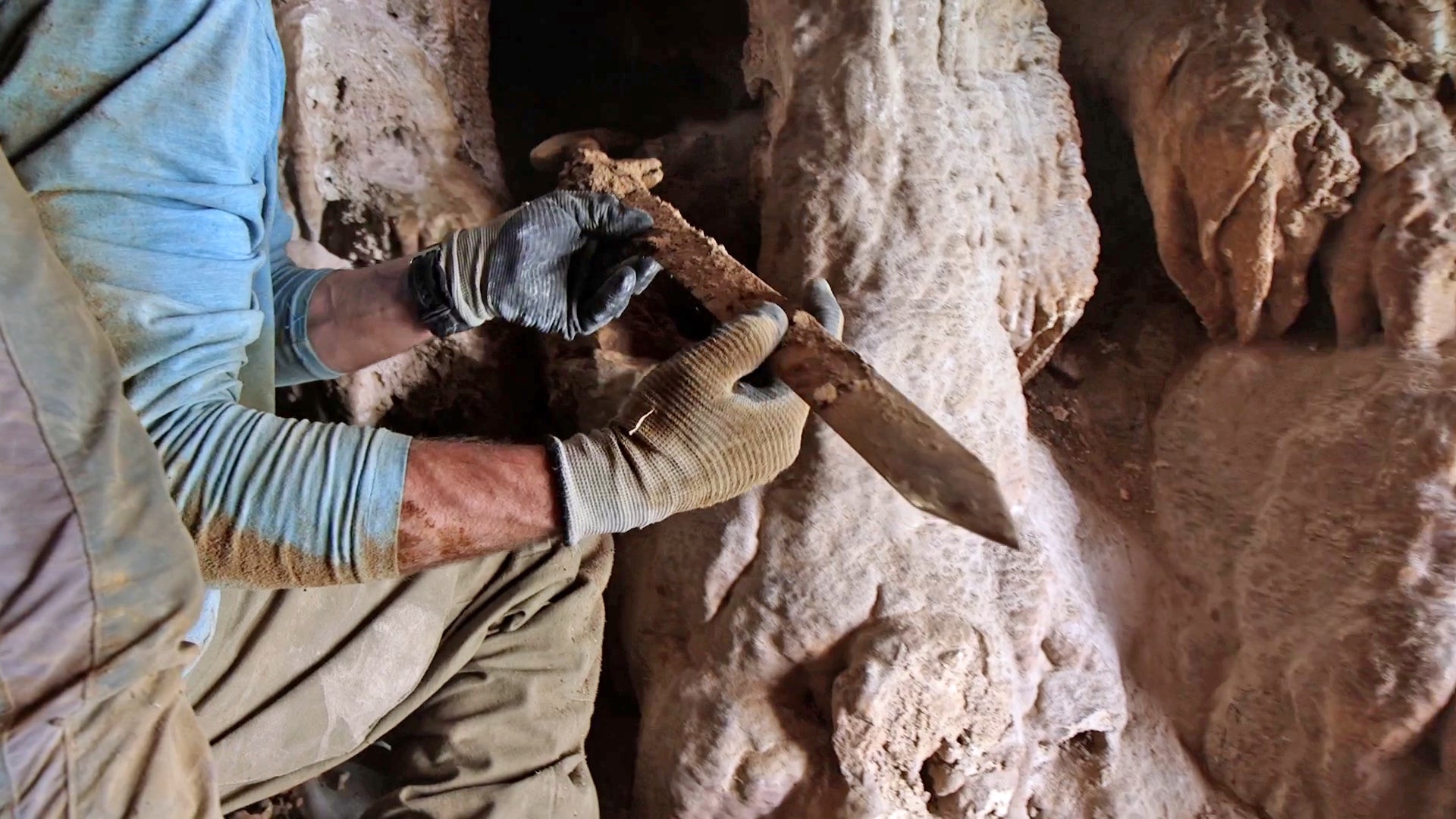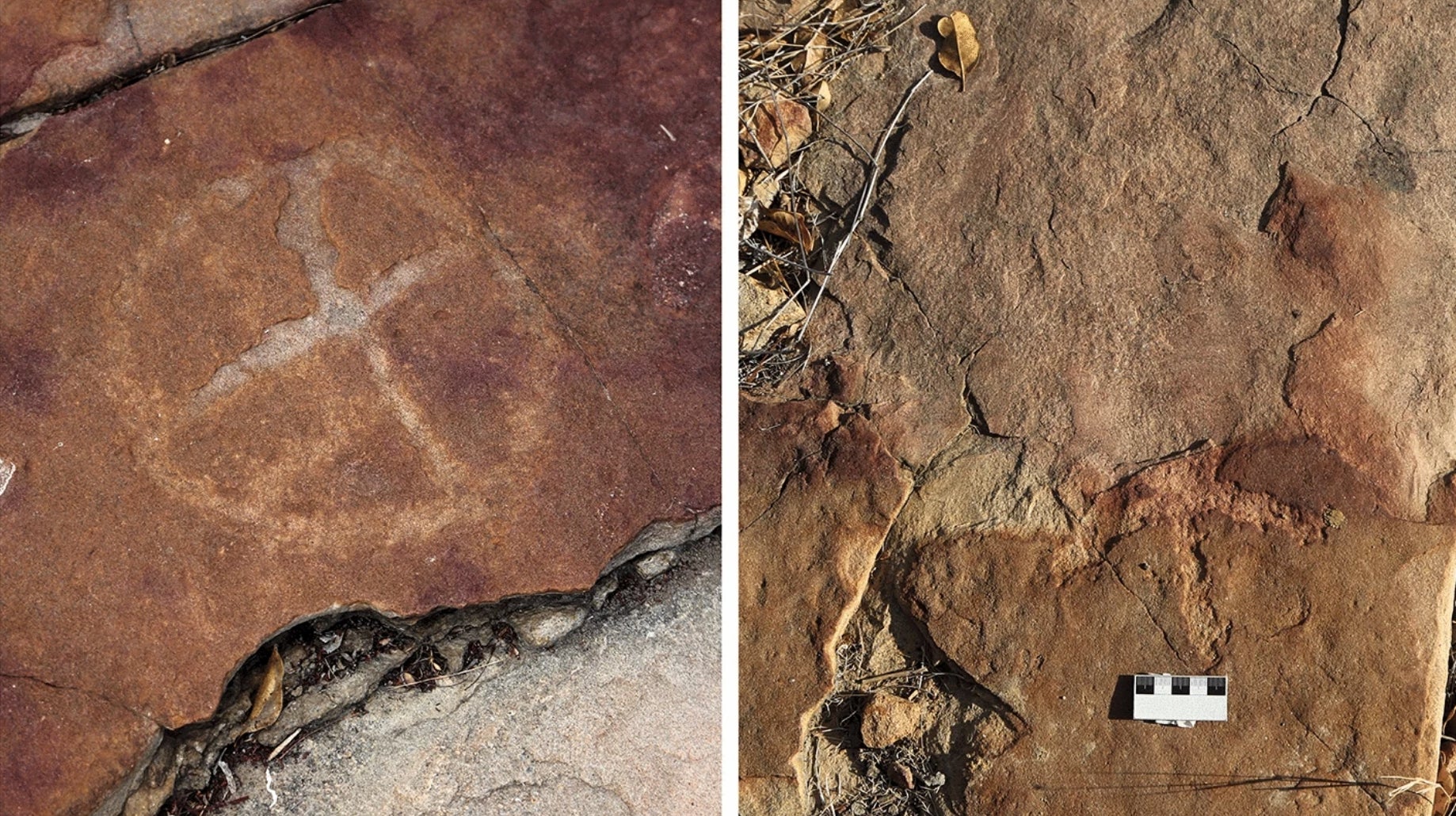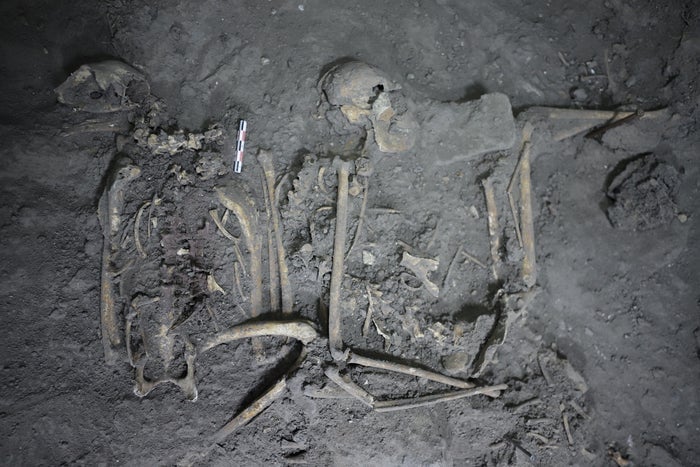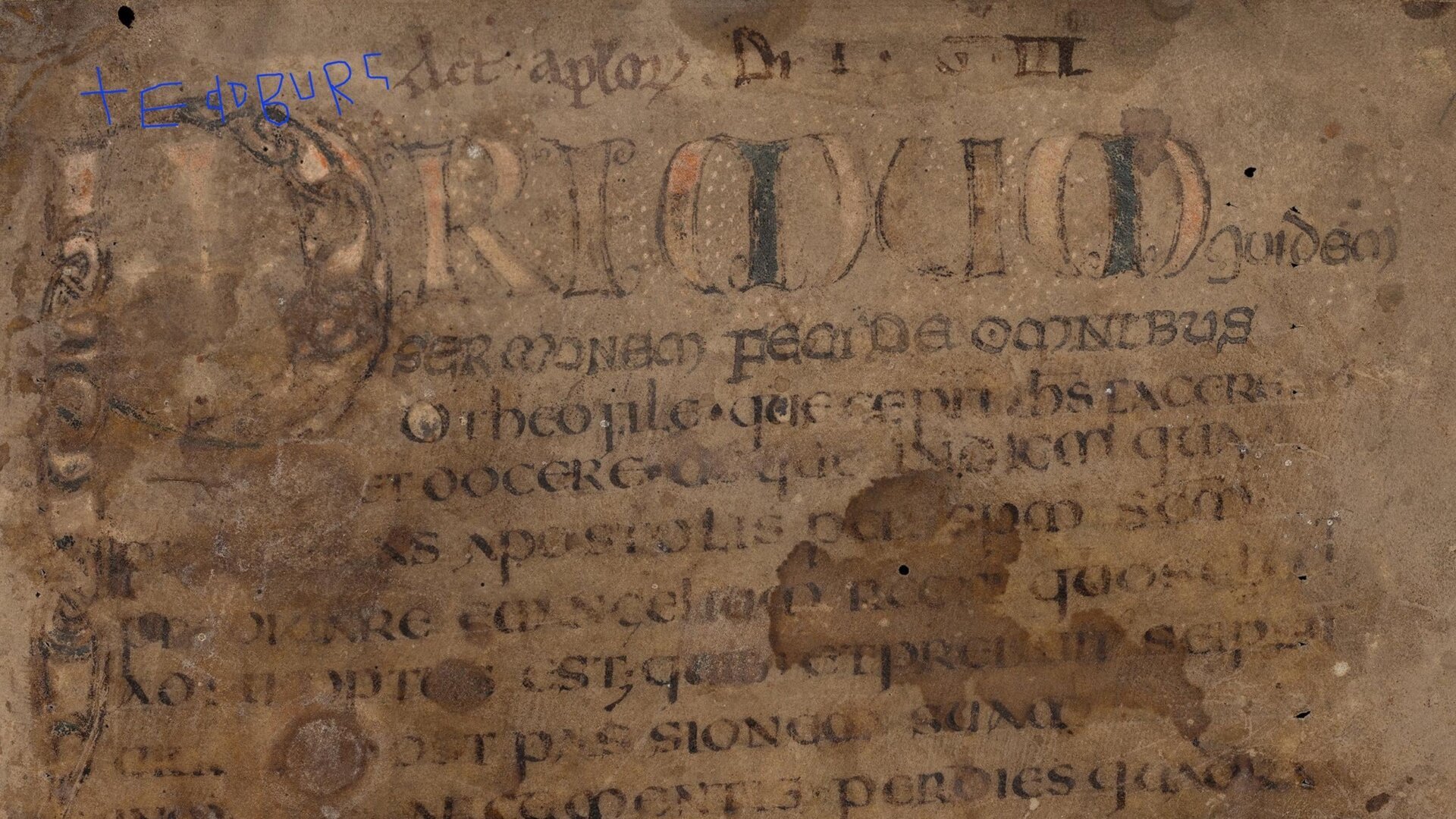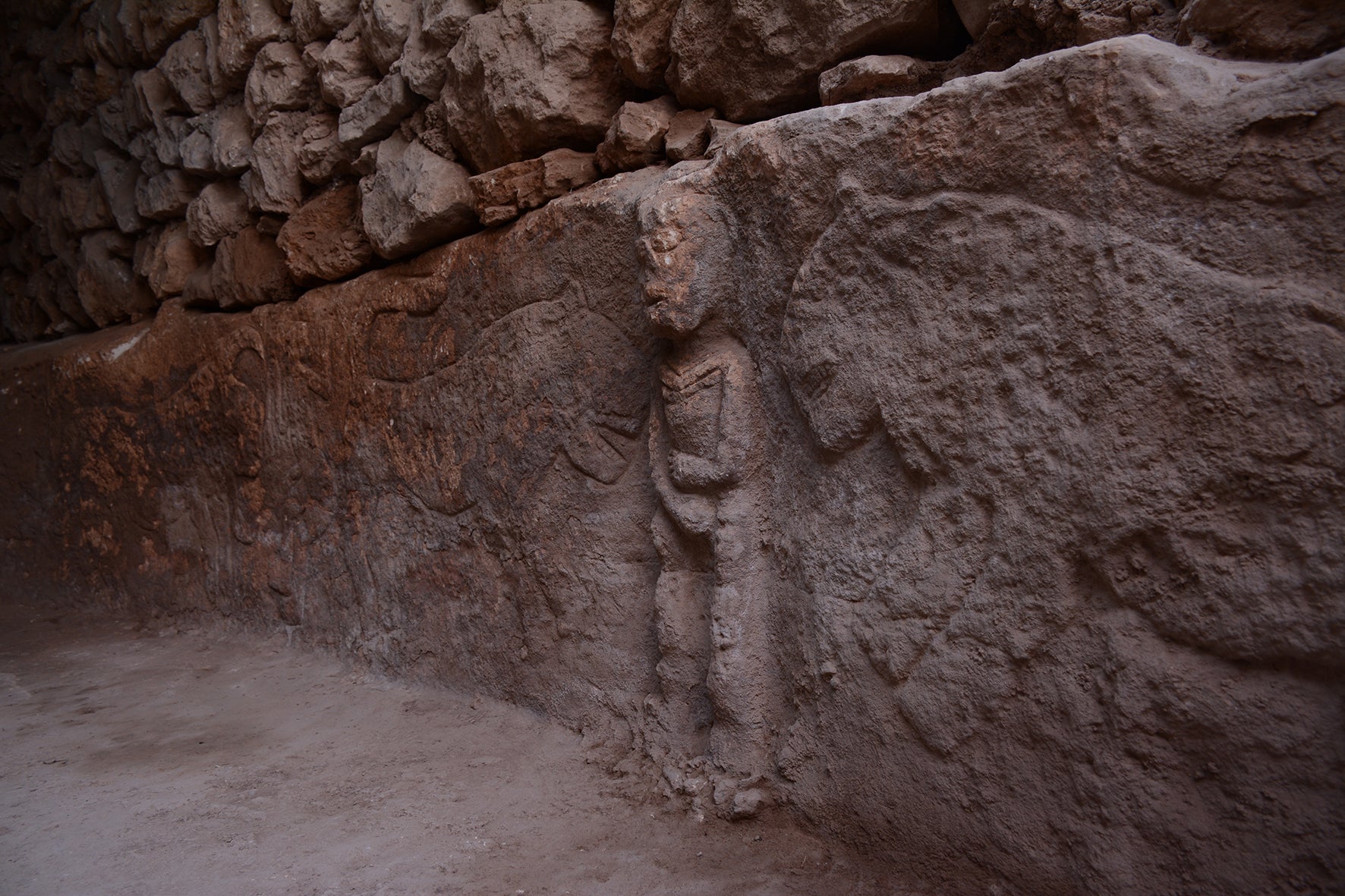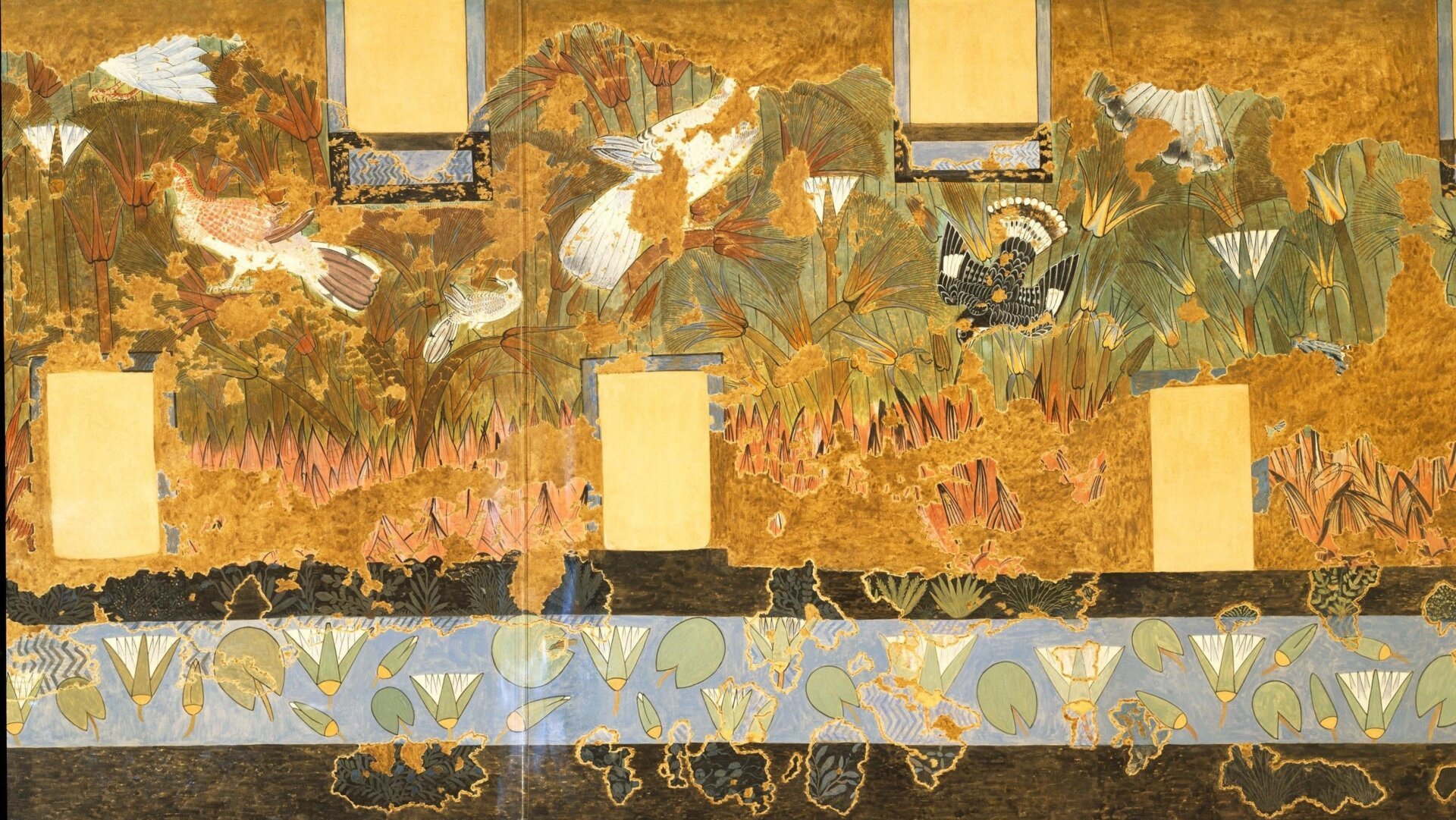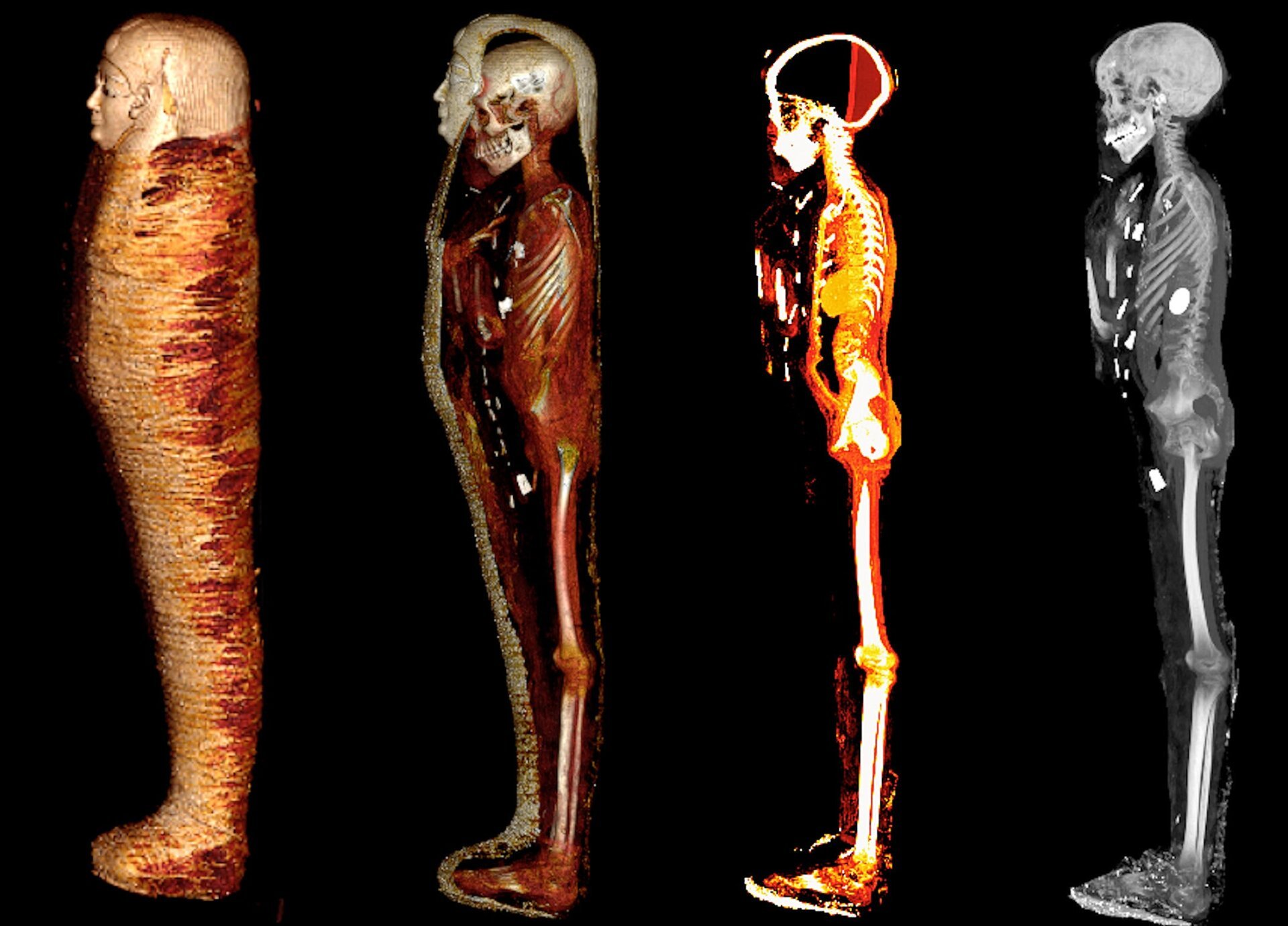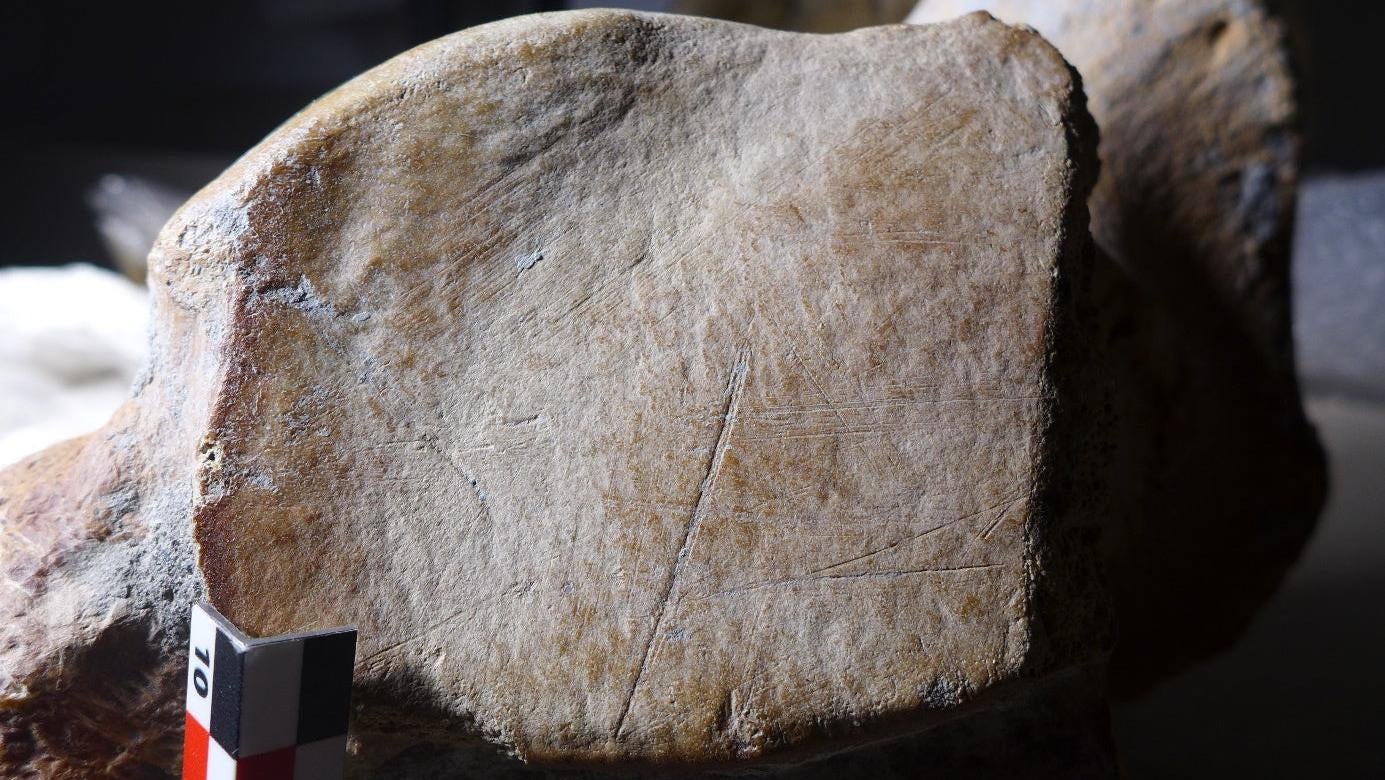The Israel Antiquities Authority (IAA) announced the remarkable discovery of four Roman swords, dating back 1,900 years, alongside a pilum (Roman javelin) concealed within a cave in the Ein Gedi Nature Reserve, situated on the western shore of the Dead Sea. Researchers believe these artifacts were likely hidden by Judean rebels as war trophies.
The cave, described as “isolated and inaccessible,” is located high in the cliffs on the northern side of the reserve, according to an IAA press release. Interestingly, a stalactite bearing a partial ink inscription in ancient Hebrew was discovered in the same cave 50 years prior.
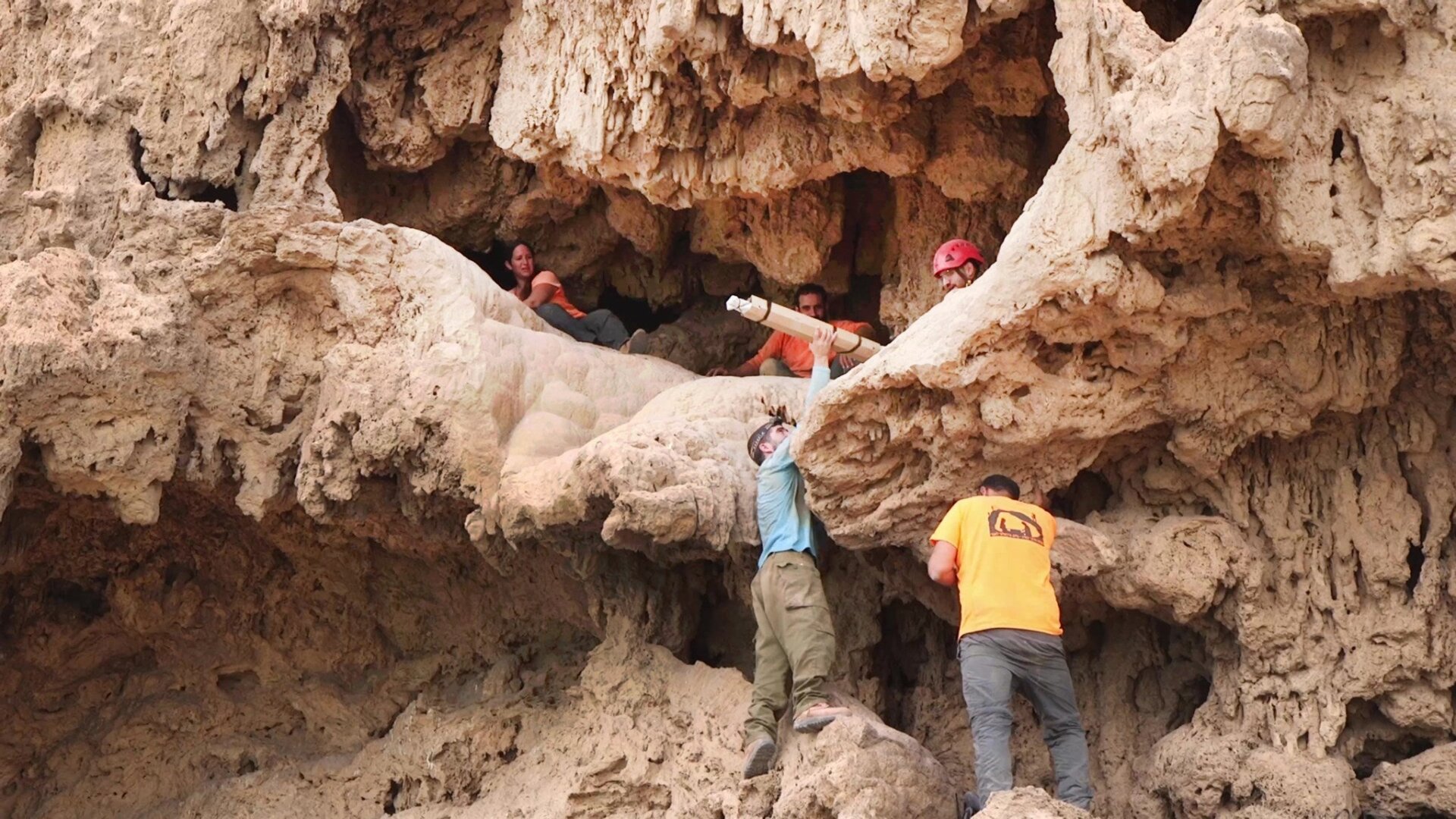 Removing the weapons from the cave.Roman swords and pilum being recovered from the cave. Photo: Emil Aladjem, Israel Antiquities Authority
Removing the weapons from the cave.Roman swords and pilum being recovered from the cave. Photo: Emil Aladjem, Israel Antiquities Authority
The recent rediscovery came about when Asaf Gayer, an archaeologist from Ariel University, Boaz Langford, a geologist from the Hebrew University of Jerusalem, and Shai Halevi, an IAA photographer, revisited the cave to document the inscribed stalactite. During their exploration, Gayer stumbled upon the pilum lodged in a crevice. Further investigation revealed an adjacent alcove containing worked pieces of wood, identified by the team as fragments of the swords’ scabbards.
A comprehensive examination of the cave ensued, uncovering the four exceptionally well-preserved Roman swords. Three of the iron blades remained within their wooden scabbards. Three swords measured between 23.6 and 25.6 inches (60 to 65 centimeters) in length, while the fourth measured approximately 17.7 inches (45 cm).
“The concealment of the swords and the pilum in deep cracks within this isolated cave north of Ein Gedi suggests they were taken as spoils of war from Roman soldiers or from the battlefield, and deliberately hidden by Judean rebels for later use,” explained Eitan Klein, director of the Judean Desert Survey Project, in the IAA release.
The four Roman swords, three with their scabbards.Four well-preserved Roman swords, three still in their scabbards, discovered in a Judean Desert cave. Photo: Clara Amit, Israel Antiquities Authority
The researchers are now focusing on pinpointing the historical event that led to the weapons’ concealment. “We will attempt to determine whether this occurred during the Bar Kokhba Revolt (132–135 CE),” added Klein.
The Bar Kokhba Revolt was a significant Jewish uprising against Roman rule, ultimately ending in defeat. However, the discovery suggests that at least some Judean rebels managed to secure war trophies. A bronze coin dating back to the Bar Kokhba era was also found within the cave, further supporting the theory that the swords were hidden during this period.
This discovery, along with the renowned Dead Sea Scrolls, underscores the rich historical significance of the caves in and around Ein Gedi. With continued archaeological exploration, more of these ancient secrets may be revealed.



